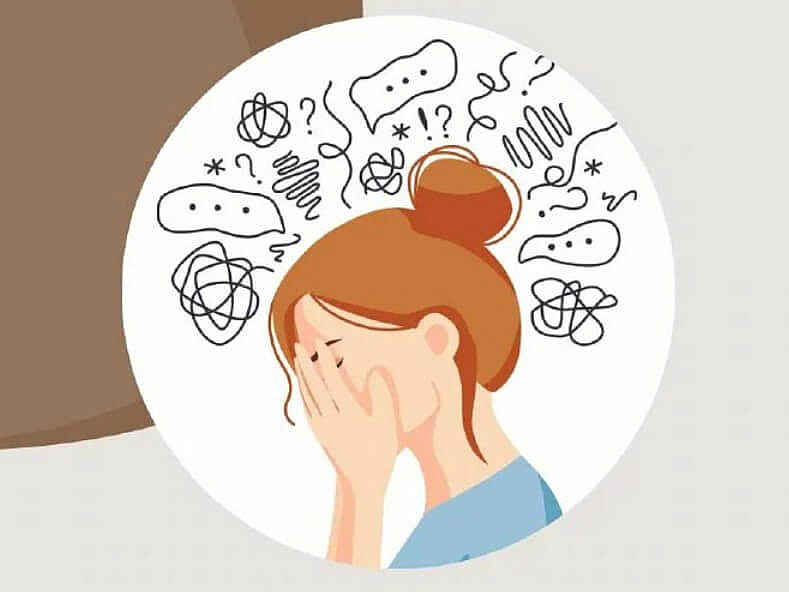Severe anxiety

Anxiety is a natural part of our lives. We face it periodically in everyday stressful situations. However, in some cases, anxiety becomes too much and interferes with functioning. In such cases, it can be classified as an anxiety disorder that requires professional intervention. Proper therapy supervised by a therapist, neurologist, and psychiatrist can help manage this condition.
Anxiety and treatments
Anxiety disorders respond effectively to treatment, but therapy must be comprehensive.
Doctors recommend that people with these disorders
- Change lifestyles
- To see a therapist
- take medication.
Adjunctive techniques, such as relaxation, biofeedback, and meditation, may be used to help reduce anxiety.
It is important to understand that anxiety disorders do not go away on their own and can lead to chronic illness, depression, or a generalized form of disorder. Doctors note that gastric ulcer disease, hypertension, and irritable bowel syndrome are often associated with untreated anxiety disorders.
Lifestyle transformation
Qualified psychotherapists emphasize that lifestyle modification plays a key role in the treatment of anxiety disorders. People affected by these problems are therefore urged to adopt healthy and balanced diets. This includes eating frequent small meals, eating large quantities of fruits and vegetables, and reducing the consumption of simple sugars and flour products.
In addition, it is extremely important to get rid of bad habits such as drinking alcohol and smoking. It is also recommended to significantly limit the consumption of caffeine, which is contained in coffee, tea and other beverages.
To successfully overcome anxiety disorders, people need to get enough sleep, exercise (any type of physical activity) regularly, and communicate with pleasant people.

Help from a psychotherapist
Psychotherapy is very important for people with anxiety disorder. For people with mild disease, doctors may teach relaxation techniques. In fact, regular follow-up to a psychotherapist's recommendations may be as effective as taking special anxiolytic drugs. However, it is worth noting that not every patient is able to regularly apply relaxation methods.
For more serious anxiety disorders, experts may suggest the following treatments:
- Cognitive behavioral therapy
- Hypnotic therapy using suggestion
- Individual therapy sessions with a therapist
- Group psychotherapy
Treatment with medications for anxiety conditions is always adapted to the patient's characteristics, taking into account all the comorbidities in the person. For example, depression may coexist with anxiety in many people.
Therefore, accurate diagnosis and correction of both conditions is essential for successful recovery. When anxiety disorder manifests spontaneously, it has no complications. Benzodiazepines may be useful. However, these drugs may not help when anxiety and depression are combined or in people who are very susceptible to substance abuse.
Often, anxiety disorders are treated with selective serotonin reuptake inhibitors.
Another way to correct anxiety disorders is with tricyclic antidepressants. It is a large group of drugs that include amitriptyline, clomipramine, nortriptyline, protriptyline, and desipramine, among others.
Tricyclic antidepressants used to be the treatment of choice for anxiety but are now used less frequently because adverse effects are more likely to occur. However, these drugs are effective in controlling panic attacks, sleep disturbances, and appetite disorders.
Correction of anxiety disorders can be done with the help of monoamine oxidase inhibitors, short for MAOIs. These drugs have a fairly high effectiveness, but they can provoke a number of relatively rare but dangerous side effects. Their use can be useful in treating anxiety that results from panic attacks. Use of MAOIs requires dietary adherence, which is important for safe therapy.
Benzodiazepines are often prescribed to patients with anxiety disorders, and in low dosage they give a good anxiolytic effect and help to cope with sleep disorders. But at the same time, such drugs can cause physical dependence and withdrawal.
Anxiety disorders can also be treated with other drugs, such as beta-blockers, alpha-adrenergic receptor antagonists, antiseizure drugs, and so forth.
The treatment regimen of anxiety disorders is selected exclusively on an individual basis by a qualified specialist.

